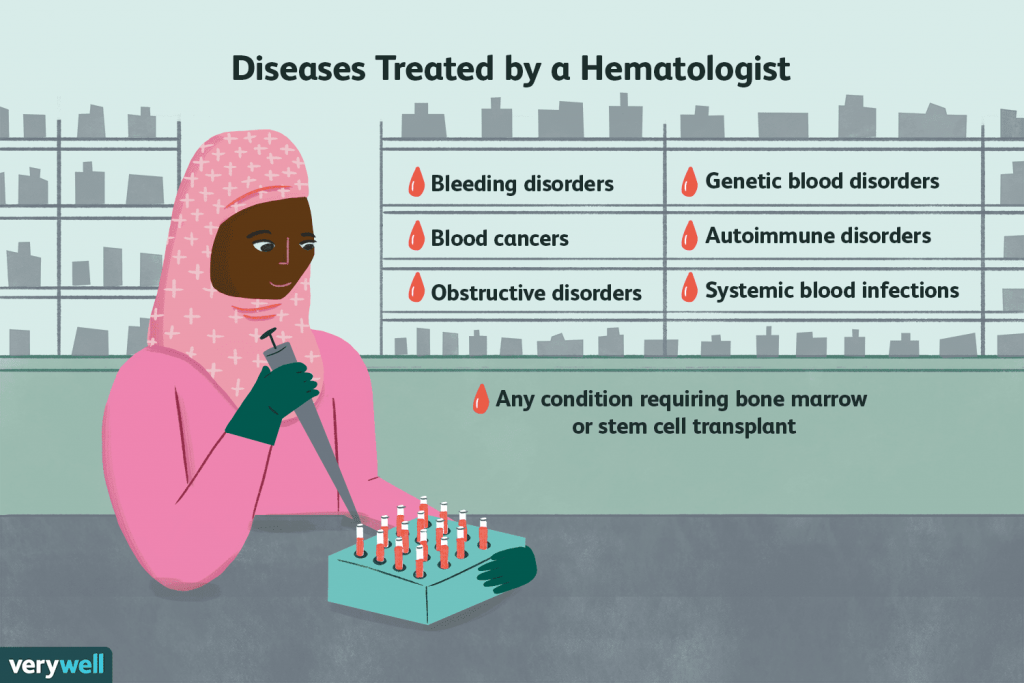The Best Hematologist Near Me: Your Path to Better Health
Are you in search of a hematologist near you? Hematologists play a crucial role in diagnosing and treating various blood disorders. Whether you’re experiencing unexplained fatigue, frequent bruising, or other concerning symptoms, finding the right hematologist near you is essential for your health and well-being. In this guide, we’ll explore the key steps to locate the best hematologist in your area.
Understanding Hematological Disorders
Hematological disorders encompass a wide range of conditions that affect the blood and bone marrow. To make an informed decision about your healthcare, it’s important to understand these disorders and their symptoms. Anemia, leukemia, and thrombocytopenia are just a few examples of blood disorders that hematologists diagnose and treat. Common symptoms include fatigue, paleness, unexplained bleeding, and frequent infections. By recognizing these signs, you can take the first step toward seeking the care you need.
Signs You Need to See a Hematologist
Wondering if it’s time to consult a hematologist near you? Pay attention to your body’s signals. Fatigue that doesn’t improve with rest, unexplained bruising, and persistent bleeding are all red flags. Additionally, if you notice an increase in infections or if your blood work shows abnormal results, it’s crucial to seek specialized care. Hematological disorders can worsen without proper attention, so don’t delay if you experience these symptoms.
How to Search for a Hematologist Near You
Finding the right hematologist near you begins with a comprehensive search. In today’s digital age, the internet is your best ally. Use search engines and healthcare websites to your advantage. Start by typing “hematologist near me” in the search bar, and you’ll get a list of options in your area. These search results often provide valuable information like location, contact details, and patient reviews, helping you narrow down your choices effectively.

Factors to Consider When Choosing a Hematologist
Selecting the right hematologist involves careful consideration of various factors. First and foremost, check their qualifications and credentials. Look for board-certified hematologists with expertise in the specific blood disorder you suspect. Location matters too – choosing a hematologist near you ensures convenient access to care. Additionally, consider factors like availability, office hours, and the ease of scheduling appointments.
Reading Patient Reviews
Patient reviews are an invaluable resource when evaluating hematologists near you. Real experiences from other patients can provide insight into the quality of care you can expect. Look for patterns in reviews, paying attention to factors like communication, waiting times, and the overall patient experience. Remember to consider both positive and negative feedback to make an informed decision.
Importance of Early Diagnosis and Treatment
Early diagnosis and treatment of hematological disorders can significantly impact your prognosis. Timely intervention can prevent complications and improve your quality of life. We’ll delve deeper into the success stories of patients who sought help in time, illustrating the positive outcomes that come with prompt medical attention.
Q: What is a hematologist, and what do they do?
A: A hematologist is a medical specialist who diagnoses and treats disorders related to the blood and bone marrow. They manage conditions such as anemia, leukemia, and blood clotting disorders.
2. Q: When should I see a hematologist near me?
A: You should consider consulting a hematologist if you experience symptoms like unexplained fatigue, frequent bruising, uncontrolled bleeding, or persistent infections.
3. Q: How do I find a hematologist near me?
A: To find a hematologist in your area, start by searching online, asking for recommendations from your primary care physician, or using healthcare directories and websites.
4. Q: What qualifications should I look for in a hematologist?
A: Look for a board-certified hematologist, has expertise in your specific blood disorder, and has a good reputation for patient care.
5. Q: What can I expect during my first consultation with a hematologist?
A: During your initial consultation, the hematologist will review your medical history, conduct necessary tests, and discuss your symptoms and treatment options.
6. Q: Are hematological disorders treatable?
A: Yes, many hematological disorders are treatable. The success of treatment depends on factors such as early diagnosis and adherence to recommended therapies.
7. Q: What are the potential complications of untreated hematological disorders?
A: Untreated hematological disorders can lead to severe complications, including anemia-related fatigue, increased risk of infections, and, in some cases, life-threatening conditions.
8. Q: How can I prepare for my appointment with a hematologist?
A: To prepare for your appointment, compile a list of questions, bring your medical records, and be ready to discuss your symptoms and any relevant family medical history.
9. Q: Does insurance typically cover hematologist visits and treatments?
A: Insurance coverage varies, so it’s important to check with your insurance provider to understand your coverage for hematologist visits and related treatments.
10Q: Can I get a second opinion from another hematologist?
A: Yes, seeking a second opinion is a common healthcare practice. If you have concerns or doubts about your diagnosis or treatment plan, don’t hesitate to consult another hematologist for a fresh perspective.
Conclusion
Optimized for On-Page SEO: In conclusion, finding the right hematologist near you is a critical step toward managing blood disorders and ensuring your overall well-being. By understanding the symptoms, conducting thorough research, and asking the right questions, you can make an informed decision. Remember that early diagnosis and treatment are key to a healthier future. Don’t hesitate to seek help if you suspect a hematological disorder. Your health is worth it.




